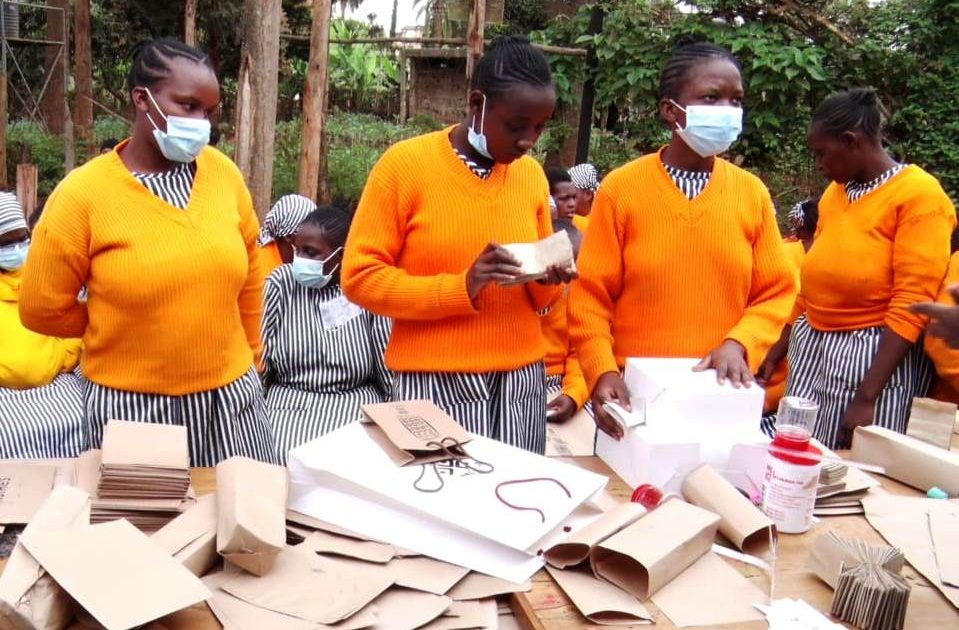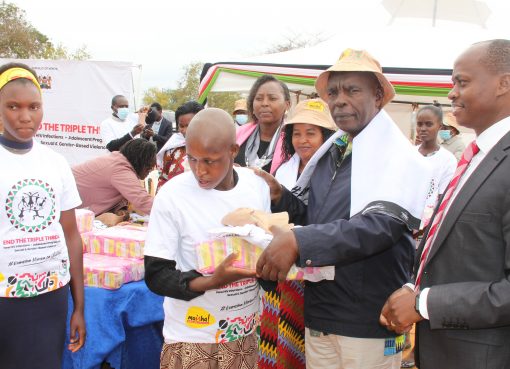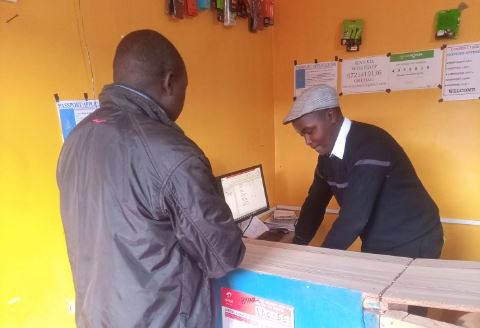Over 300 inmates from Thika main and women prisons have benefited from a short course from a well-wisher on how to make valuable paper products to earn a living once they complete their jail terms.
The skills involved turning khaki paper into various designs of envelopes, shopping bags and cake boxes on a large scale that can fetch good prices in the markets as well as market networking for the products.
The four-day training offered by Jamii products Ltd in collaboration with the Prison Services was aimed at rehabilitating the inmates by equipping them with hands-on skills that will offer them new avenues of earning after they complete their jail terms.
The beneficiaries led by Stella Njoki Kung’u, 19, said due to the cheap nature of the production and the returns therein, they might decide to use the skills to make such products in future to keep them moving once they leave prison.
In the main prison, beneficiaries led by David Karanja who is serving a two years jail term called on other well-wishers to bring more training forums to equip them with a variety of skills that they will use to earn a living once they are released.
“Once we complete our jail terms, together with utilizing the other skills that we have learnt while in prison we will be able to start making these products to earn a living,” said Karanja.
They also called on the government and corporates to promote their business by offering them tenders and employing them in various departments that may require the skills taught.
“Some of us leave prison while fully reformed and having good technical skills that if embraced can drive the economy. We call upon employers not to look down upon us but rather support and nurture the skills we have to their advantage,” said Karanja.
Jamii products limited CEO Charles Kimani said the training will help the prisoners to become job creators and self-reliant once they complete their jail terms.
“Once out of prison, the inmates will have a chance of generating income through utilizing these skills. This will enable them, not become dependents who will be looked down upon by the society and will also lock them out of wayward behaviours,” said Kimani.
He at the same time called on young people to embrace technical courses where they will be able to use hands-on skills to earn a living.
Jeff Mbugua, a representative of the prison’s management welcomed the initiative saying the training forms part of rehabilitation programs that is offered at the prison to help the inmates become self-reliant after serving their terms.
He urged the prisoners to take advantage of the courses and use them to economically transform their lives.
He also called on the youth to engage in income generating activities so as to avoid lawlessness that often leads them to jail.
By Muoki Charles




